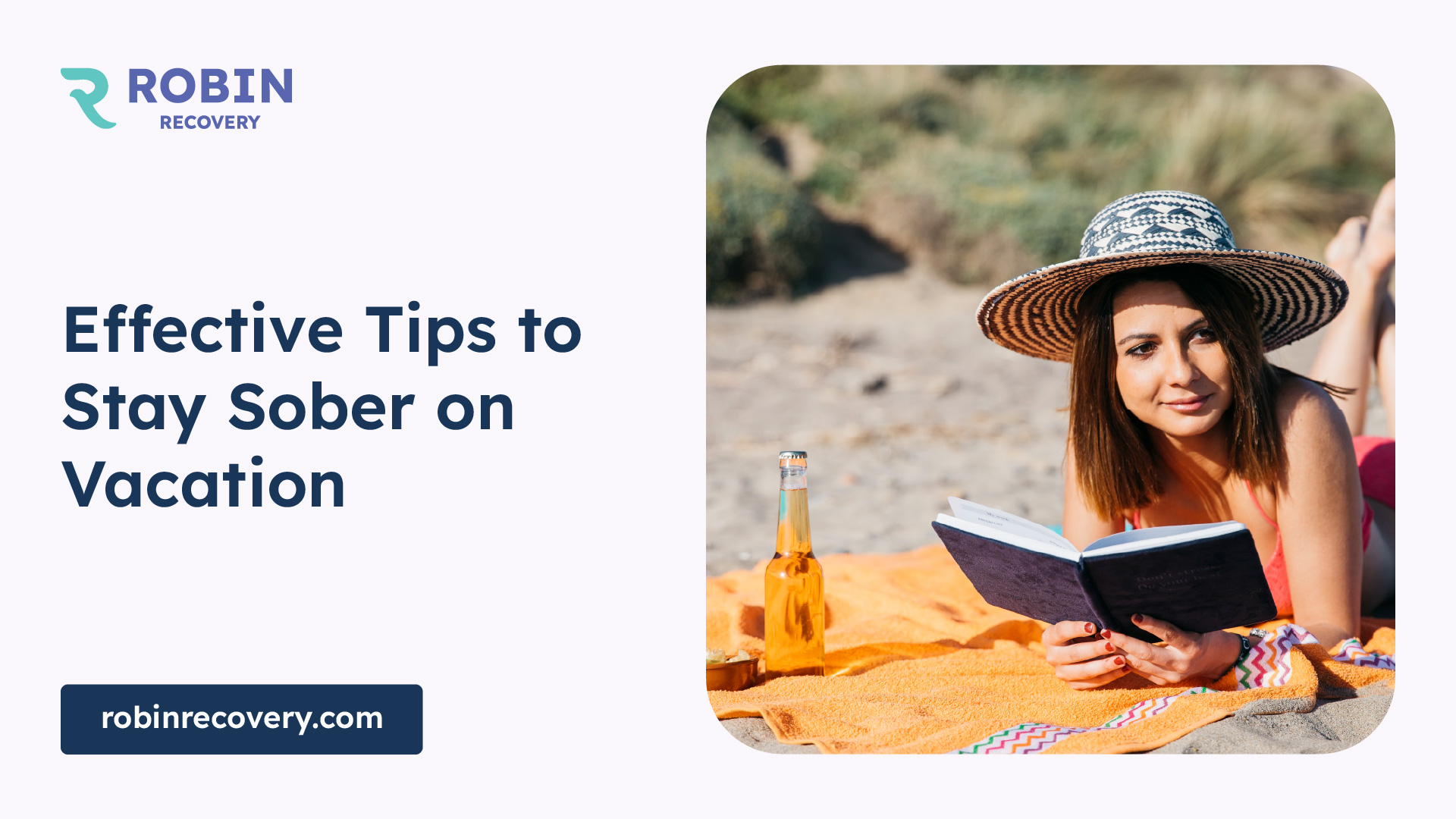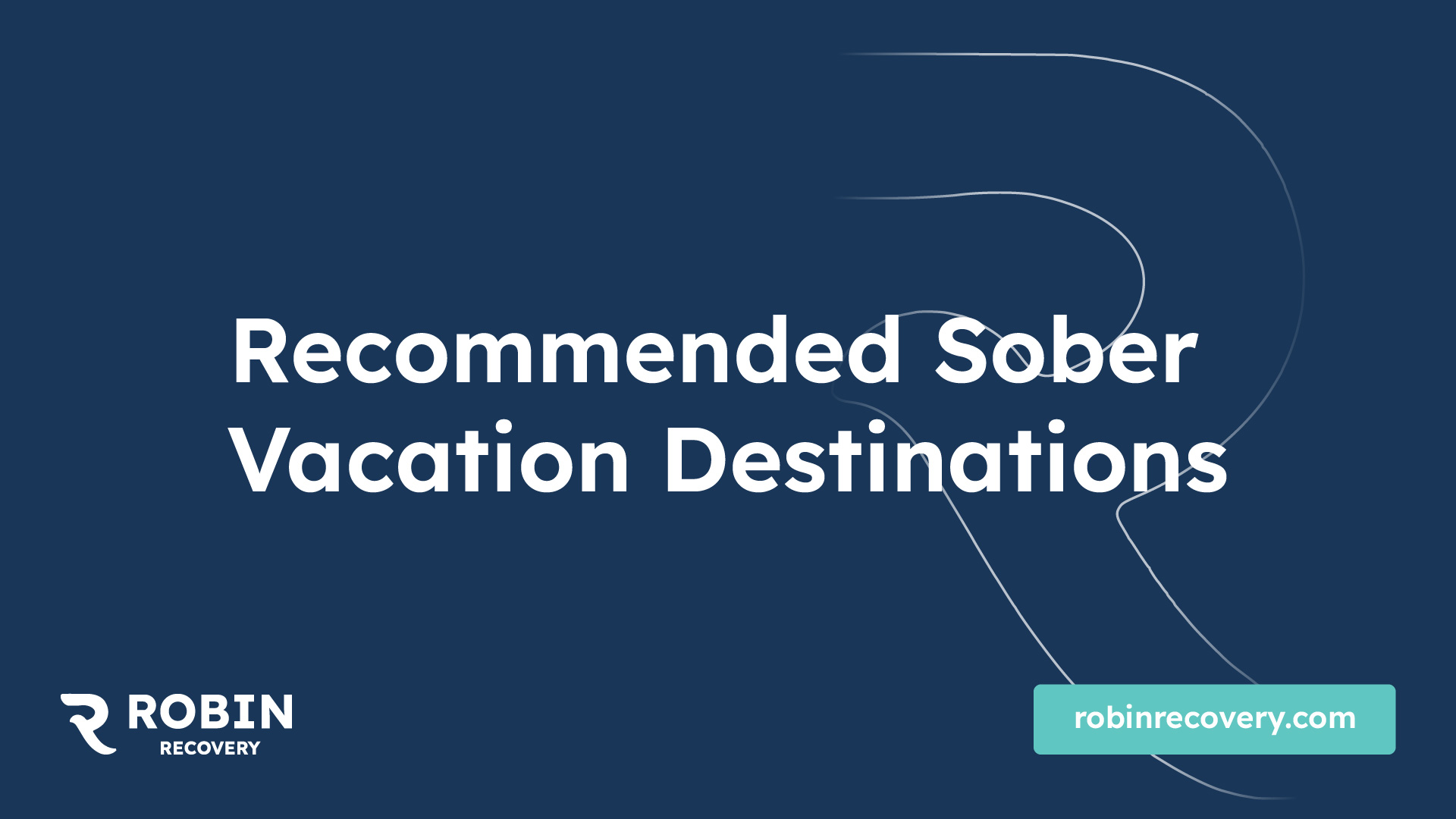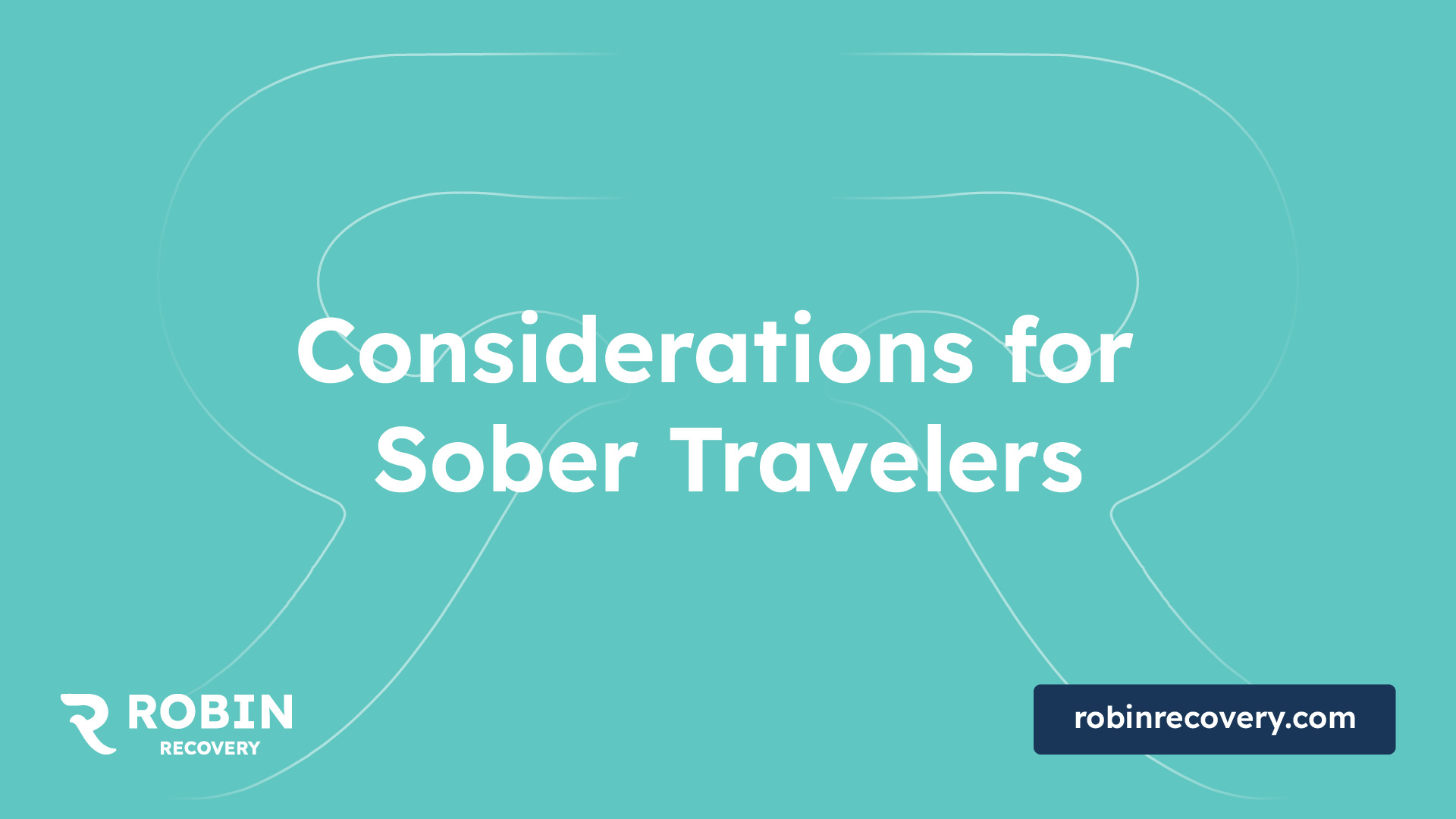Effective Tips to Stay Sober on Vacation


Strategies for Sober Vacation
Planning a vacation while staying sober requires thoughtful consideration and preparation. By implementing effective strategies, individuals can enjoy a fulfilling and alcohol-free vacation experience. Two key strategies to consider are planning alcohol-free activities and connecting with a support system.
Planning Alcohol-Free Activities
When organizing a sober vacation, it's essential to plan activities that do not involve alcohol consumption. This ensures that individuals can fully enjoy their trip while maintaining their sobriety. Consider the following ideas for alcohol-free activities:
- Explore Nature: Engaging in outdoor activities such as hiking, swimming, or cycling allows individuals to connect with nature and enjoy the beauty of their surroundings. Research outdoor adventures in the destination of choice to find suitable options.
- Wellness Activities: Many resorts and retreats offer a range of wellness activities that promote relaxation and rejuvenation. These may include yoga classes, meditation sessions, spa services, or fitness programs. Incorporating these activities into the itinerary can contribute to a fulfilling and alcohol-free vacation experience.
- Cultural Experiences: Immerse yourself in the local culture by exploring museums, art galleries, historical landmarks, or attending cultural events. These activities provide opportunities for personal growth and enrichment.
- Volunteering: Consider participating in volunteer work or community service activities during your vacation. Engaging in acts of service not only benefits others but also fosters a sense of gratitude and connection, which can be powerful tools in maintaining sobriety [1].
- Educational Workshops: Seek out workshops or classes that align with personal interests or hobbies. This could involve learning a new skill, attending a cooking class, or participating in a creative workshop. These educational experiences can be both enjoyable and empowering.
By planning alcohol-free activities in advance, individuals can create a vacation itinerary that aligns with their sobriety goals and provides a fulfilling and memorable experience.
Connecting with Support System
Maintaining a strong support system is crucial, especially while on vacation. Here are some ways to ensure a support network is readily available:
- Inform Companions: Communicate your commitment to sobriety with your travel companions. Let them know about your preferences and boundaries regarding alcohol consumption. Open and honest communication can help set expectations and prevent uncomfortable situations [2].
- Attend Meetings: If you are part of a recovery program, research and locate meetings in the vacation destination. Attending meetings can provide a sense of connection with like-minded individuals and offer additional support during your trip.
- Utilize Online Resources: Online sober communities and forums can be valuable sources of support, even while on vacation. Engaging with these communities allows you to connect with individuals who understand the challenges and triumphs of maintaining sobriety.
- Reach Out to Loved Ones: Stay connected with your loved ones back home. Regular phone calls, video chats, or messages can provide emotional support and a sense of connection while away.
By proactively connecting with a support system, individuals can find encouragement, guidance, and strength during their sober vacation.
Remember, staying sober on vacation is a personal journey, and it's important to tailor strategies to individual needs and preferences. By planning alcohol-free activities and nurturing a support system, individuals can enjoy a fulfilling vacation experience while maintaining their sobriety.
Handling Triggers and Cravings
When staying sober on vacation, it's important to be prepared for potential triggers and cravings. By identifying these triggers and implementing effective coping mechanisms, you can navigate challenging situations and maintain your sobriety. Here are some strategies to help you handle triggers and cravings while on vacation.
Identifying Potential Triggers
Identifying potential triggers is a crucial step in staying sober on vacation. Triggers can vary from person to person, but common ones include being in environments where alcohol is present, encountering people who are drinking, or experiencing stress or emotional turmoil. By being aware of these triggers, you can take proactive steps to avoid or manage them effectively.
Before your trip, take some time to reflect on the situations or environments that have triggered cravings in the past. This could include family gatherings, parties, or certain locations. By recognizing these triggers, you can plan ahead and develop strategies to minimize their impact on your sobriety.
Coping Mechanisms
Having effective coping mechanisms in place is vital for managing triggers and cravings while on vacation. Here are some strategies that can help:
- Practice mindfulness: Mindfulness techniques, such as deep breathing exercises or meditation, can help you stay present and focused on your sobriety. By grounding yourself in the present moment, you can navigate triggers and cravings with clarity and resilience.
- Engage in self-care: Prioritize self-care activities that promote relaxation and well-being. This can include activities like taking a walk in nature, practicing yoga, or indulging in a hobby you enjoy. By taking care of your physical and mental health, you strengthen your ability to resist cravings.
- Seek support: Staying connected with your support system back home is crucial while on vacation. Regular contact through phone calls, texts, or video chats provides a sense of accountability and encouragement, reminding you that you are not alone in your recovery journey. Researching support groups in the area where you are vacationing can also be beneficial.
- Avoid high-risk situations: If you know that certain environments or events will increase your risk of encountering triggers, it's best to avoid them altogether. This could involve politely declining invitations to parties where alcohol will be present or choosing sober vacation destinations that offer a supportive and alcohol-free environment.
- Have a plan: Develop a plan for how you will handle cravings or unexpected triggers while on vacation. This could include having a list of emergency contacts readily available, carrying a non-alcoholic drink with you to deter offers of alcohol, or having a script prepared to politely decline drinks if necessary.
Remember, staying sober on vacation is a personal journey, and what works for one person may not work for another. It's important to find coping mechanisms that resonate with you and align with your individual needs and preferences. By being proactive, prepared, and connected to your support system, you can enjoy your vacation while maintaining your sobriety.
For more insights on staying sober on vacation, check out our article on sober vacation ideas or learn from the experiences of others, like Kat, who shares her 15 years of alcohol-free travel in our section on Insights from Experienced Sober Traveler.

Recommended Sober Vacation Destinations
When planning a sober vacation, it's important to choose destinations that offer a range of activities and experiences suitable for individuals seeking an alcohol-free vacation. Here are two recommended options:
Wellness Resorts
Wellness resorts provide an ideal environment for those looking for a sober vacation experience focused on holistic wellness. These resorts offer a variety of activities and programs that promote physical, mental, and spiritual well-being. One notable example is Mexico's Vikara Wellness Retreats in Puerto Vallarta. They specialize in sober retreats that provide tools for maintaining long-term sobriety and healthy habits.
At Vikara Wellness Retreats, guests can engage in activities such as yoga, meditation, and nutrition workshops. These practices not only contribute to overall well-being but also help individuals develop healthier habits and coping mechanisms. By immersing themselves in a supportive environment, guests can enhance their sobriety journey while enjoying a relaxing and rejuvenating vacation.
Outdoor Adventures
For those seeking an active and adventurous sober vacation, destinations offering outdoor activities can be a fantastic choice. These destinations provide opportunities to connect with nature and engage in exhilarating experiences. Some top destinations for outdoor adventures include Sri Lanka, Costa Rica, Morocco, Malaysia, Peru, Maldives, Los Angeles, and Orlando.
In these destinations, you can explore beautiful landscapes, embark on hiking or trekking expeditions, go scuba diving, or participate in water sports. Engaging in these activities not only allows you to enjoy the natural wonders of the world but also keeps you occupied and focused on healthy pursuits. Being surrounded by nature's beauty can have a positive impact on your well-being and help you stay connected to your sobriety.
By choosing wellness resorts or outdoor adventure destinations, individuals seeking a sober vacation can enjoy experiences that cater to their preferences and provide opportunities for personal growth. Remember to explore our article on sober vacation ideas for more inspiration and options to plan your alcohol-free getaway.
Tips for Staying Sober on Vacation
Going on vacation shouldn't mean compromising your sobriety. With the right strategies and mindset, you can fully enjoy your time away while staying sober. Here are some tips to help you stay on track during your vacation.
Engaging in Alcohol-Free Activities
One of the keys to staying sober on vacation is to plan and engage in activities that don't revolve around alcohol. Fortunately, there are numerous options available that cater to individuals seeking an alcohol-free experience.
Consider exploring sober vacation ideas such as wellness retreats, spa getaways, or outdoor adventures. These types of destinations often provide opportunities for relaxation, self-discovery, and connection with nature, all without the need for alcohol. Engaging in activities like hiking, yoga, meditation, or sightseeing can help you create memorable experiences that are enjoyable and fulfilling.
Additionally, take advantage of the growing trend of non-alcoholic beverage options. Many brands and spirit producers now offer alcohol-free alternatives, providing a wide range of tasty and satisfying drinks. Craft mocktails using simple syrups, a SodaStream, or experiment with delicious garnishes to create a refreshing alcohol-free alternative [3]. Embracing these options can enhance your vacation experience while keeping you on your sober path.
Communicating Needs to Companions
When traveling with others, it's important to communicate your sobriety needs and expectations. Let your companions know in advance about your decision to stay sober and ask for their support. Open and honest communication will help set the tone for your vacation and ensure that everyone is on the same page.
If you're comfortable, discuss alternative plans and activities that do not involve alcohol. Suggest exploring local attractions, trying new restaurants, or participating in outdoor activities together. By focusing on shared experiences that don't revolve around alcohol, you can strengthen your connections and create lasting memories.
Remember, it's okay to socialize with friends or family members who choose to drink. However, if you feel uncomfortable or at risk of compromising your sobriety, it's important to prioritize your well-being. In such situations, consider referring to our article on I am sober. Can I socialize with friends who drink? for additional guidance.
By engaging in alcohol-free activities and openly communicating your needs to your travel companions, you can enjoy a fulfilling and sober vacation. Remember to plan ahead, stay connected to your support system, and embrace the opportunities for growth and self-discovery that come with your journey. Stay strong, and savor every moment of your sober vacation.

Considerations for Sober Travelers
When traveling as a sober individual, there are important considerations to keep in mind to ensure a positive and fulfilling experience. Understanding varying needs and preferences and conducting pre-trip surveys can greatly contribute to a successful sober vacation.
Varying Needs and Preferences
It's essential to recognize that each sober traveler may have unique needs and preferences. Some individuals may have a strong support system in place and feel confident in navigating social situations where alcohol is present, while others may require additional assistance or prefer to avoid alcohol-centric environments altogether.
To cater to varying needs and preferences, it can be helpful for sober travelers to research and choose destinations that offer a range of sober vacation ideas. This can include wellness resorts, outdoor adventures, or destinations known for their cultural experiences. By selecting a location that aligns with personal interests, individuals are more likely to feel comfortable and enjoy their vacation without the pressure to consume alcohol.
Conducting Pre-Trip Surveys
Prior to embarking on a sober vacation, conducting pre-trip surveys can be a valuable tool in planning and preparing for potential challenges. These surveys can involve reaching out to travel companions, tour operators, or accommodations to gather information about the availability of alcohol-free activities and support for sober travelers.
By openly communicating one's preferences and requirements, it becomes easier to ensure that the trip is tailored to the needs of the sober traveler. This can involve inquiring about non-alcoholic beverage options at restaurants, identifying alcohol-free excursions or sightseeing opportunities, or simply discussing the importance of having a supportive and understanding environment.
Conducting pre-trip surveys can also help identify any potential triggers or challenges that may arise during the vacation. By being aware of these factors in advance, individuals can develop appropriate coping mechanisms and strategies to handle them effectively.
Remember, being proactive and communicative about your needs as a sober traveler is key to creating an environment that supports your sobriety. By conducting pre-trip surveys and understanding your own requirements, you can ensure a more enjoyable and fulfilling vacation experience.
For additional support and insights from experienced sober travelers, we will explore Kat's 15 years of alcohol-free travel and provide assistance for planning sober vacations in the following section.
Insights from Experienced Sober Traveler
Drawing upon the experiences of seasoned sober traveler Kat, who has been traveling alcohol-free for 15 years, we can gain valuable insights into how to stay sober on vacation. Kat's extensive knowledge and understanding of the challenges faced by individuals seeking a sober vacation have inspired her to provide assistance to those in need.
Kat's 15 Years of Alcohol-Free Travel
With a decade and a half of alcohol-free travel under her belt, Kat has gathered a wealth of knowledge and firsthand experiences. Her journey has involved exploring a wide range of destinations and engaging in various activities while remaining committed to her sobriety. Through her own experiences, Kat has learned effective strategies and developed a network of resources to support others in their quest for a sober vacation.
Kat's insights serve as a testament to the fact that sobriety and adventure can go hand in hand. She encourages individuals to embrace the opportunity to explore new destinations, engage in enriching activities, and connect with like-minded individuals who are also on a sober journey. By sharing her experiences, Kat aims to inspire and empower others to embark on their own alcohol-free travel adventures.
Assistance for Planning Sober Vacations
Recognizing the challenges faced by individuals who may be nervous about planning a sober vacation, Kat offers her expertise and assistance. She understands that the process of organizing a sober trip can sometimes be overwhelming, and she is dedicated to helping others navigate this journey.
If you are seeking guidance or support in planning a sober vacation, Kat invites you to reach out to her via email at kathleen@sobertraveling.com. Her commitment to assisting individuals in their pursuit of an alcohol-free travel experience stems from her passion for creating a community of sober travelers who can support and uplift one another.
Whether you are looking for sober vacation ideas, advice on how to socialize with friends who drink, or information on the benefits of service in maintaining sobriety, Kat is dedicated to providing the guidance and resources you need. Her insights, combined with her experience in creating the "Sober Traveling" podcast, make her a valuable ally in your quest for a fulfilling and alcohol-free vacation.
By leveraging the knowledge and expertise of experienced sober travelers like Kat, you can embark on a vacation that not only offers relaxation and adventure but also supports your commitment to sobriety. So don't hesitate to reach out to Kat and explore the possibilities of an alcohol-free travel experience.
References
[1]: https://www.hazeldenbettyford.org/articles/tips-for-enjoying-sober-holidays
[2]: /i-am-sober-can-i-socialize-with-friends-who-drink
[3]: https://www.thegoodtrade.com/features/sober-things-to-do-instead-of-drinking-alcohol/
